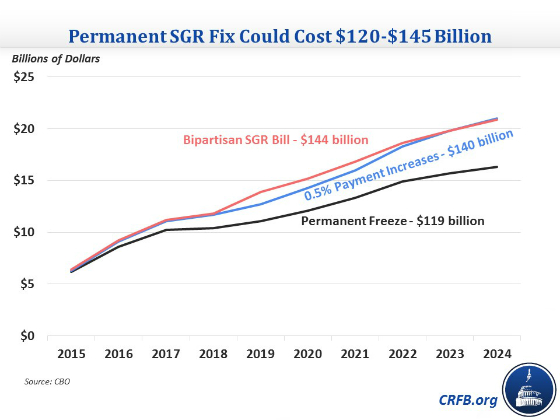- Continue submitting Medicare claims at the old rates and hope the Senate passes the repeal bill by April 14.
- Retain your Medicare claims for services rendered beginning April 1 and wait for final passage of the repeal bill — or a temporary delay of the 21% cut — before submitting them.
- Remain calm and carry on.
As of yesterday, Medicare officially reduced its reimbursement rate for physician-provided services by more than 21%. The future of Medicare reimbursement may be brighter than that, and it may be darker, but currently the only certainty is uncertainty.
The 21% cut was triggered by the so called sustainable growth rate (SGR) formula. (See Figure.) The good news is that physicians may not see any change in their Medicare pay if the Senate passes a bipartisan SGR repeal bill by April 14, a bill President Barack Obama has promised to sign.
Of course, this is a big if, and physicians and the healthcare community are simply left wondering what the future will bring.

What to Not Do Today
So what should physicians do, if anything, during this period of Medicare payment uncertainty? First, keep calm and carry on. Beyond that:
- Do not mark down your Medicare claims that you do after April 1, 2015 in the hope that you will get it back after the SGR is repealed. Don’t change anything yet. You may not be reimbursed at your standard rate, but you will have a claim to make. If you mark down your charges today, and the SGR repeal bill is eventually passed by the Senate, CMS would not reprocess such a claim at pre-April rate levels. You would not be reimbursed at the full rate.
- Continue submitting Medicare claims at the old rates and hope the Senate passes the repeal bill by April 14.
According to a report on Medscape, “this approach comes with the risk that the Senate may not do its part until after April 14. In that case, CMS will begin to pay claims for prior April services at rates reflecting the 21% reduction. All is not lost in this event, however: if the Senate were to pass the repeal bill on, say, April 20, CMS would reprocess the shrunken claims at the old rates. But cash flow would be disrupted.”
- Retain your Medicare claims for services rendered beginning April 1 and wait for final passage of the repeal bill — or a temporary delay of the 21% cut — before submitting them.
Again, according to Medscape, “This approach spares physicians the hassle of having their claims reprocessed if the cut goes into effect for a few days or weeks because the Senate acted after the April 14 deadline. The downside is that Medicare cash flow gets clogged up for 2 weeks or more. For some medical practices that treat a lot of seniors, this increase in Medicare accounts receivable could mean dipping into a bank line of credit to meet payroll
